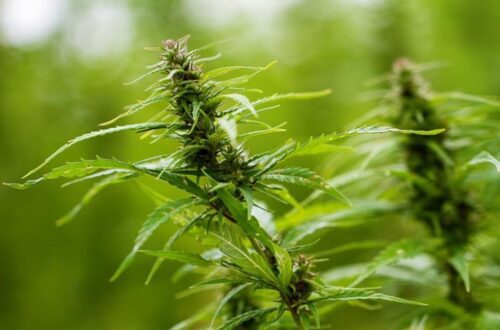Imagine a plant that can revolutionize industries, support local economies, and contribute to environmental health—all at once. That might sound too good to be true, but hemp is making it a reality. Once demonized and misunderstood, hemp is now emerging as a powerhouse for sustainable development.
Communities around the globe are harnessing hemp for its versatility and eco-friendliness. From creating biodegradable plastics and sustainable textiles to fortifying construction materials and even producing food, hemp’s potential is nearly limitless.
But it’s not just about the products. The cultivation of hemp enriches the soil, reduces carbon footprints, and provides farmers with new economic opportunities. In embracing hemp, communities can pave the way for a greener, more sustainable future while boosting local economies.
Ready to explore this incredible journey? Let’s dive into how hemp is spearheading a new era of sustainable community development.
Hemp As a Sustainable Resource for Community Development
Hemp’s remarkable versatility is a game-changer for sustainable community development. This plant serves as an eco-friendly alternative to many conventional resources, helping communities reduce their environmental impact.
One of the standout features of hemp is its ability to grow quickly and with minimal resources. Unlike many other crops, hemp requires less water and fewer pesticides, making it an environmentally sustainable choice. Plus, its deep roots help to aerate the soil and prevent erosion, promoting healthier ecosystems.
In terms of economic benefits, hemp offers enormous potential. Farmers can diversify their income by cultivating hemp, which is a resilient crop with multiple uses. From producing fabrics and building materials to creating biofuels, the economic opportunities are vast and varied.
Additionally, hemp processing can spark local innovation and entrepreneurship. Small businesses can thrive by creating hemp-based products such as cosmetics, dietary supplements, and even pet foods. This not only spurs economic growth but also fosters community resilience and self-sufficiency.
By turning to hemp, communities can embrace a sustainable path that supports both the environment and local economies, making it a cornerstone for future development.
The Role of Hemp in Environmental Conservation and Regeneration
Hemp is not just a wonder crop for economic reasons; it also plays a significant role in environmental conservation and regeneration. One of hemp’s most amazing attributes is its ability to absorb CO2. In fact, an acre of hemp can absorb more CO2 than an acre of trees, making it a potent ally in the fight against climate change.
Additionally, hemp is incredibly beneficial for soil health. Its deep root system helps prevent soil erosion, and it can even clean up soil contamination through a process called phytoremediation. By absorbing harmful toxins, hemp helps regenerate polluted land, making it arable once again.
Water conservation is another critical advantage. Hemp requires considerably less water compared to traditional crops like cotton. This reduction in water use is essential for conserving freshwater resources, especially in drought-prone regions.
Biodiversity also benefits from hemp cultivation. Hemp fields can serve as a habitat for various wildlife, boosting local biodiversity. Additionally, the plant’s natural resistance to pests reduces the need for chemical pesticides, which can harm other plants and animals.
Incorporating hemp into agricultural practices and industrial applications helps maintain ecological balance. By leveraging its unique properties, we can take meaningful steps toward a more sustainable and resilient environment.

Empowering Local Economies Through Hemp Cultivation
Hemp cultivation has the potential to breathe new life into local economies, especially in rural areas. By providing farmers with a versatile crop that has numerous industrial applications, hemp can create a steady source of income and foster economic stability.
One of the most exciting aspects of hemp is the variety of products it can produce—everything from textiles and building materials to biofuels and health supplements. This diversity means that small businesses have ample opportunities to thrive in different sectors, bringing jobs and investment to their communities.
As well as this, the lower input costs associated with hemp farming make it an attractive option for growers. Hemp requires fewer pesticides and less water than many traditional crops, reducing operational costs and increasing profitability.
The resurgence of hemp farming can also revitalize local manufacturing industries. By processing hemp locally, communities can generate added value from the raw materials, creating a ripple effect of economic benefits. This local processing can lead to new enterprises and further job creation, ensuring the economic gains stay within the community.
Educational opportunities are another byproduct of hemp’s economic potential. As interest in hemp grows, so does the need for expertise. Universities and vocational schools can develop new programs focused on hemp cultivation, research, and product development, providing valuable skills and knowledge to the workforce.
Investing in hemp is not just an investment in a crop; it’s an investment in community resilience and economic empowerment. By embracing hemp, we can unlock new economic possibilities and help build stronger, more sustainable local economies.
Harnessing Hemp for Social Impact in Communities
Hemp is much more than a cash crop; it can drive meaningful social change within communities. By offering sustainable solutions and community-focused initiatives, hemp has the power to tackle various social issues.
Hemp farming can bring diverse groups together, fostering a sense of community and collaboration. Community gardens and co-ops centered around hemp cultivation provide opportunities for people to work side by side, share knowledge, and strengthen communal bonds.
Education and Awareness
Education plays a crucial role in leveraging hemp for social impact. Workshops and informational sessions can inform community members about the environmental and economic benefits of hemp. This increased awareness can lead to more widespread acceptance and adoption of hemp-based initiatives.
Additionally, involving schools in hemp-related projects introduces younger generations to sustainable practices and the importance of eco-friendly solutions. These educational programs can inspire future leaders to prioritize sustainability and community well-being.
Empowering marginalized groups is another significant social benefit of hemp cultivation. Hemp projects can offer job opportunities and training programs to underserved populations, providing them with valuable skills and pathways to economic independence.
It’s also worth noting, non-profit organizations can utilize hemp as a tool for addressing food insecurity and housing needs. Hemp-based building materials can create affordable housing options, while hemp seeds and oils can contribute to nutritional support programs.
Promoting Environmental Stewardship
Hemp’s positive environmental impact also translates into social benefits. Cleaner air, healthier soil, and reduced reliance on harmful chemicals improve the overall well-being of a community. By championing hemp, communities can take collective steps toward environmental stewardship, promoting a healthier living environment for all residents.
Policy Considerations and Advocacy for Hemp-Based Development
Navigating the world of hemp-based development requires smart policies and strong advocacy to unlock its full potential. Governments at all levels play a crucial role in shaping the landscape for hemp cultivation and utilization.
One of the primary considerations is ensuring clear and supportive regulations for hemp farmers. Policy frameworks should provide guidance on licensing, safety, and environmental standards, making it easier for small farmers and startups to enter the market.
Removing unnecessary legal barriers and streamlining approval processes can also foster innovation in hemp-related industries. This includes everything from cultivation to product development and distribution, ensuring that businesses can adapt and grow efficiently.
Advocacy groups and stakeholders need to rally for research funding and educational programs. These resources are vital to understanding hemp’s full capabilities and ensuring that best practices are implemented across the board. And another thing to keep in mind is that, public funding can propel scientific breakthroughs and sustainable farming methods.
Equally important is public awareness and acceptance. Advocates should engage in campaigns that highlight the benefits of hemp, dispelling myths and misinformation. Collaborations with media, influencers, and educational institutions can amplify these efforts, creating a more informed and supportive public.
Economic incentives, such as grants and tax incentives, can further promote hemp-based initiatives. By providing financial support, governments can encourage businesses to invest in hemp, spurring job creation and sustainable development.
Finally, international cooperation and trade agreements can open new markets for hemp products. Harmonizing standards and regulations globally can make hemp exports more feasible, benefiting both local economies and the environment on a broader scale.
Advocating for these policy changes and considerations can pave the way for a thriving hemp industry, which in turn supports sustainable development and social progress.
Case Studies: Successful Models of Hemp-Driven Community Progress
Looking at real-world examples can help us understand how hemp can drive community progress. Around the world, many communities have already started to harness the incredible potential of hemp.
Revitalizing Rural Economies
In rural parts of the United States, hemp has become a game-changer. Farmers who once struggled with declining profits from traditional crops have found new economic opportunities with hemp. By rotating hemp with other crops, they have improved soil health and reduced dependence on chemical inputs. This, in turn, sustains the local agriculture economy and creates job opportunities.
Take, for example, a small town in Kentucky that shifted its economic focus to hemp. Local businesses began producing hemp-derived products like CBD oil and textiles, attracting tourists and boosting local revenue. The community not only gained economic benefits but also a renewed sense of pride and purpose.
Urban Innovation and Sustainability
Hemp isn’t just for rural areas; urban settings are also benefiting from it. In cities like Amsterdam, innovative companies are exploring hemp-based construction materials. Hempcrete, a sustainable building material made from hemp, is gaining traction due to its eco-friendly properties.
One notable project is a newly built community center, crafted almost entirely from hempcrete. Not only is it energy-efficient and cost-effective, but it’s also sparked a wave of interest in green building practices. The success of this project has inspired similar initiatives, demonstrating hemp’s versatility and environmental advantages.
Environmental Restoration
In addition to economic and urban development, hemp is making waves in environmental restoration projects. In parts of China, large-scale hemp cultivation is being used to remediate polluted land. Hemp plants are known for their phytoremediation capabilities, meaning they can absorb pollutants from the soil, making it healthier over time.
One success story comes from a heavily industrialized region where soil contamination was a significant problem. After several phases of hemp planting, the land has shown marked improvements in both soil quality and biodiversity. This model offers hope for other regions facing similar challenges.
These case studies showcase the diverse ways hemp can contribute to community development. From revitalizing economies and urban innovation to environmental restoration, hemp proves to be a versatile ally for progress.
Collaborative Partnerships for Sustainable Development with Hemp
Harnessing the full potential of hemp for sustainable development requires collaboration. Diverse partnerships among governments, businesses, non-profits, and local communities can create comprehensive strategies for progress.
Public-Private Partnerships
Governments and private companies teaming up can lead to transformative projects. For example, a state government might offer incentives for businesses to explore hemp production. By providing grants and subsidies, they can lower the financial barriers for startups and established companies alike.
One inspiring example is a partnership between a state government and a startup focused on developing hemp-based bioplastics. Together, they aim to replace traditional plastic packaging with sustainable alternatives. This initiative not only reduces plastic waste but also stimulates local economies by creating new jobs.
Education and Research Collaborations
Universities and research institutions play a crucial role in pioneering hemp innovations. By partnering with local farmers and businesses, they can offer valuable insights and practical applications. Studies on optimizing hemp crop yields or developing new hemp-derived products can drive industry growth.
For instance, a collaboration between a agricultural college and a local farming cooperative has led to the development of more resilient hemp strains. These new varieties can withstand extreme weather conditions, ensuring stable crop production and supporting farmers’ livelihoods.
Community organizations and research institutions often work hand-in-hand to provide educational programs. Workshops and seminars about sustainable hemp farming and production can empower individuals with the knowledge they need to thrive in this emerging industry.
Grassroots Initiatives
Local communities and non-profits are vital for inclusive progress. Grassroots initiatives can address specific community needs, ensuring that benefits reach all population segments.
In several towns, community gardens are embracing hemp cultivation as part of urban farming initiatives. These gardens often serve educational purposes, teaching residents about sustainable agriculture and the environmental benefits of hemp. These grassroots projects foster stronger community bonds and promote a sustainable lifestyle.
Collaborative partnerships amplify the potential of hemp for sustainable development. By uniting various stakeholders, we can create a synergistic impact, driving economic, environmental, and social progress. The future looks promising when we work together towards a common goal.
The Bottom Line: Building a Greener Future Through Hemp and Community Collaboration
At the end of the day, embracing hemp as a cornerstone for sustainable development is about more than just planting a crop. It’s about rethinking how we engage with our environment and each other. Hemp’s versatility makes it a powerful tool for change, but its true potential is unlocked through collaboration.
When governments, businesses, researchers, and communities come together, they create a fabric of support that nurtures innovation and resilience. By forming public-private partnerships, we can drive economic growth while reducing our environmental footprint. Educational collaborations bring new ideas to the forefront, helping farmers and producers optimize their practices and create exciting new hemp-based products.
Grassroots initiatives remind us that sustainable progress starts at the local level. Community-driven projects not only educate but also empower people, fostering a sense of ownership and responsibility toward our shared future. Whether it’s urban hemp gardens or local co-ops, these efforts ensure that the benefits of hemp are felt by all.
Transitional steps are essential. While the journey toward a greener future is ongoing, every partnership and project propels us forward. The combined effort of diverse stakeholders is necessary to build a sustainable and equitable world where hemp plays a vital role.
In conclusion, our path to a sustainable future is clearer when we walk it together. The combined power of hemp and community collaboration offers us a unique opportunity to make a meaningful impact. Let’s embrace this potential, support each other, and work collectively towards a greener, more sustainable tomorrow.






